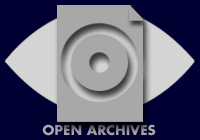The Significance of the Conch in William Golding's Lord of the Flies
Jamiah Solehati(1), Bernadus Hidayat(2*)
(1) English Department, Universitas Gadjah Mada
(2) English Department, Universitas Gadjah Mada
(*) Corresponding Author
Abstract
This research investigates the significance of the conch shell in the novel Lord of the Flies written by William Golding. The focus of this research is to examine the meaning of the conch shell as one of the most important symbols and to observe the dynamic of the main characters in relation to power. The research applies textual formalism approach to uncover the meaning of the symbol. Furthermore, this research is also supported with sociological approach to relate the literary work with the reality of the social condition during that era and to get a better understanding of the characterization of the main characters in the novel. The main data used in this research is the novel Lord of the Flies. To support this analysis, additional data is taken from various sources such as books and academic journals. The result of this analysis shows that conch is symbol of democratic power and order. Furthermore, the conch leads us to understand that we must have rules and authority to maintain a safe environment. Without them, utter chaos is inevitable.
Keywords
Full Text:
156-163 PDFReferences
Amalia, F. (2014). Civilization versus savagery in William Golding's Lord of the Flies. (Unpublished undergraduate thesis). Universitas Gadjah Mada, Yogyakarta, Indonesia.
Bruns, B. (2008). The symbolism of power in William Golding's Lord of The Flies. Retrieved from http://www.diva-portal.org/smash/get/diva2:132457/fulltext01.
Dagar, J. (2013). The nightmare beast, war and the children in William Golding's Lord of the Flies. Psy Art.
George, J. & Raju, R.L.N. (2015). Personal accountability to evil in William Golding's Lord of the Flies. Mediterranean Journal of Social Sciences, 6(6), S2. 174-178. http://dx.doi.org/10.5901/mjss.2015.v6n6s2p174.
Golding, W. (2006). Lord of the Flies. New York: Perigee Book.
Kennedy, X. J. & Gioia, D. (2005). Literature: An introduction to fiction, poetry, and drama. London: Longman.
Niemeyer, C. (1961). The Coral Island revisited. College English, 22(4), 241–245.
The Nobel Prize. (1983, October). William Golding. Retrieved from https://www.nobelprize.org/prizes/literature/1983/press-release/.
Tyson, L. (2006). Critical theory today: A user-friendly guide (2nd ed.). New York: Routledge.
Wilson, D. D. (2014). A study on the reflection of Biblical characters and concept in Lord of the flies . IMPACT: International Journal of Research in Humanities, Arts and Literature, 2(5), 179-182.
Yudha, J. P. (2011). Freudian latent phase in wilderness as portrayed in William Golding's Lord of the Flies (A psychological approach). (Unpublished undergraduate thesis). Universitas Sebelas Maret, Surakarta, Indonesia.
Article Metrics
Refbacks
- There are currently no refbacks.
Copyright (c) 2019 Jamiah Solehati, Bernadus Hidayat

This work is licensed under a Creative Commons Attribution-ShareAlike 4.0 International License.
Lexicon Office
| English Department Faculty of Cultural Sciences, Universitas Gadjah Mada Soegondo Building, 3rd Floor, Room 306 Yogyakarta, Indonesia 55281 Telephone: +62 274 513096 Email: lexicon.fib@ugm.ac.id ISSN: 2746-2668 (Online) |
 LEXICON is licensed under a Creative Commons Attribution-ShareAlike 4.0 International License. |
Lexicon is indexed in












